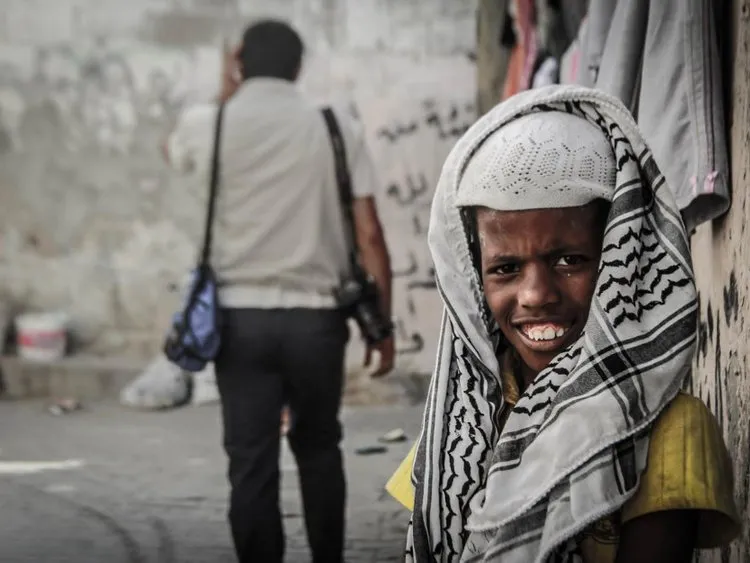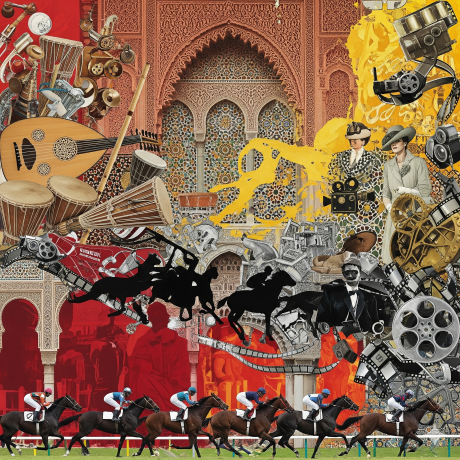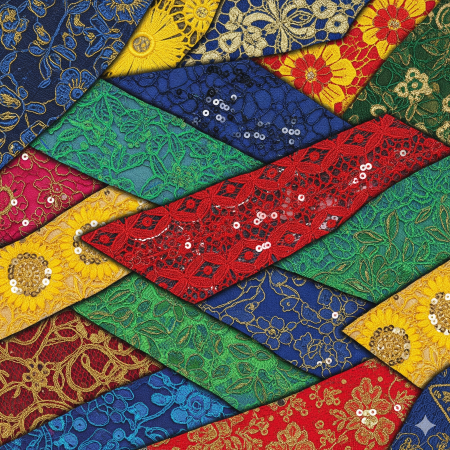Afro Palestinians: The Forgotten African Diaspora

Did you know?
A small but historically significant African community has lived in Jerusalem’s Old City for centuries. Known as Afro-Palestinians, their presence reflects a layered intersection of African heritage and Palestinian identity, shaped by pilgrimage, empire, migration, and conflict.
A Longstanding Presence in the Holy Land
Image Credit: CJP
Afro-Palestinians are a distinctive community of African descent whose roots in Palestine trace back to the 12th century. Many arrived as Muslim pilgrims from Sudan, Chad, Nigeria, Senegal, and Central Africa, often visiting Jerusalem after completing the Hajj pilgrimage to Mecca. Some chose to settle permanently, marrying local Palestinians and forming what became Afro-Arab families.
Ottoman Era: Guardians of a Sacred Site
Image Above: Afro-Ottoman wrestler and his European opponent, 1710. Credit: Wikipedia
During the Ottoman period, Africans played a notable role in Jerusalem’s religious life. Many were appointed to guard the Haram esh-Sharif, the site that includes the Al-Aqsa Mosque. Others arrived through slave trade routes, including the Trans-Saharan and Red Sea slave trades, which continued until the late 19th century. The last known slave ship to reach the region docked in Haifa in 1876.
Although slavery was formally abolished by the early 20th century, clientage systems—which involved dependency relationships resembling servitude—persisted in some areas for years afterward.
History
Rewind the Stories that Made Africa, Africa
A Journey Through Time, Narrated with Insight.
British Mandate and Post-1948 Settlement
Under British colonial rule, especially during World War I, African laborers from Sudan, Nigeria, Senegal, and Chad were brought to Palestine to assist with infrastructure and logistical projects. The African population grew modestly during the British Mandate, particularly in the 1930s.
The 1948 Arab-Israeli conflict marked a turning point. Many African Muslims who had traveled to Palestine were unable to return to their countries of origin due to closed borders. Some joined the Arab Liberation Army, aligning themselves with Palestinian fighters during the conflict.
The African Quarter: Community and Continuity
Image Credit: Jerusalem Story
Today, most Afro-Palestinians reside in Jerusalem’s African Quarter, located within the Old City near the Al-Aqsa Mosque. Sometimes referred to locally as “Little Harlem,” the area includes former ribats (hostels for pilgrims), such as Ribat al-Mansuri and Ribat al-Busari, which were later converted into residential housing.
In addition to Jerusalem, smaller Afro-Palestinian communities exist in Gaza City's Al Jalla’a district and the West Bank city of Jericho, where families continue to maintain their cultural traditions.
Cultural Identity and Everyday Challenges
Afro-Palestinians identify as both African and Palestinian. Their cultural life reflects this blend: Arabic is their primary language, Islam is their shared faith, and they participate in many aspects of Palestinian social and political life. African customs, passed down through generations, still inform aspects of music, food, and family structure.
At the same time, the community has faced significant challenges. Discrimination, economic hardship, and social marginalization—from both Israeli authorities and at times within Palestinian society—remain ongoing issues. Despite this, many Afro-Palestinians have been actively involved in political and resistance movements.
History
Rewind the Stories that Made Africa, Africa
A Journey Through Time, Narrated with Insight.
Names, Lineage, and Historical Memory
Family names within the Afro-Palestinian community often point to tribal or regional African origins. One example is the Salamat tribe from Chad, a lineage reflected in the background of notable Afro-Palestinian figures.
Ali Jiddah, a former member of the Popular Front for the Liberation of Palestine, is among the most well-known voices from this community. His father migrated from Chad, and Jiddah himself spent 17 years in Israeli prison before becoming a tour guide and advocate for Afro-Palestinian history. Some families still hold passports, documents, or oral histories that trace their roots to African homelands.
A Community Often Overlooked
Afro-Palestinians represent a small but historically rooted part of Palestinian society. Their story spans pilgrimage, military service, forced migration, and civic engagement. They continue to live primarily near one of Islam’s holiest sites while negotiating the complexities of a layered identity.
While not always visible in mainstream narratives, their experiences reflect broader themes of migration, belonging, and resilience. For many, the goal remains both preserving their African heritage and asserting their place within Palestinian history and society.
Cover Image Credit: Khaled Beydoun
You may also like...
Ndidi's Besiktas Revelation: Why He Chose Turkey Over Man Utd Dreams

Super Eagles midfielder Wilfred Ndidi explained his decision to join Besiktas, citing the club's appealing project, stro...
Tom Hardy Returns! Venom Roars Back to the Big Screen in New Movie!

Two years after its last cinematic outing, Venom is set to return in an animated feature film from Sony Pictures Animati...
Marvel Shakes Up Spider-Verse with Nicolas Cage's Groundbreaking New Series!

Nicolas Cage is set to star as Ben Reilly in the upcoming live-action 'Spider-Noir' series on Prime Video, moving beyond...
Bad Bunny's 'DtMF' Dominates Hot 100 with Chart-Topping Power!

A recent 'Ask Billboard' mailbag delves into Hot 100 chart specifics, featuring Bad Bunny's "DtMF" and Ella Langley's "C...
Shakira Stuns Mexico City with Massive Free Concert Announcement!

Shakira is set to conclude her historic Mexican tour trek with a free concert at Mexico City's iconic Zócalo on March 1,...
Glen Powell Reveals His Unexpected Favorite Christopher Nolan Film

A24's dark comedy "How to Make a Killing" is hitting theaters, starring Glen Powell, Topher Grace, and Jessica Henwick. ...
Wizkid & Pharrell Set New Male Style Standard in Leather and Satin Showdown

Wizkid and Pharrell Williams have sparked widespread speculation with a new, cryptic Instagram post. While the possibili...
Victor Osimhen Unveils 'A Prayer From the Gutter', Inspiring Millions with His Journey

Nigerian football star Victor Osimhen shares his deeply personal journey from the poverty-stricken Olusosun landfill in ...






